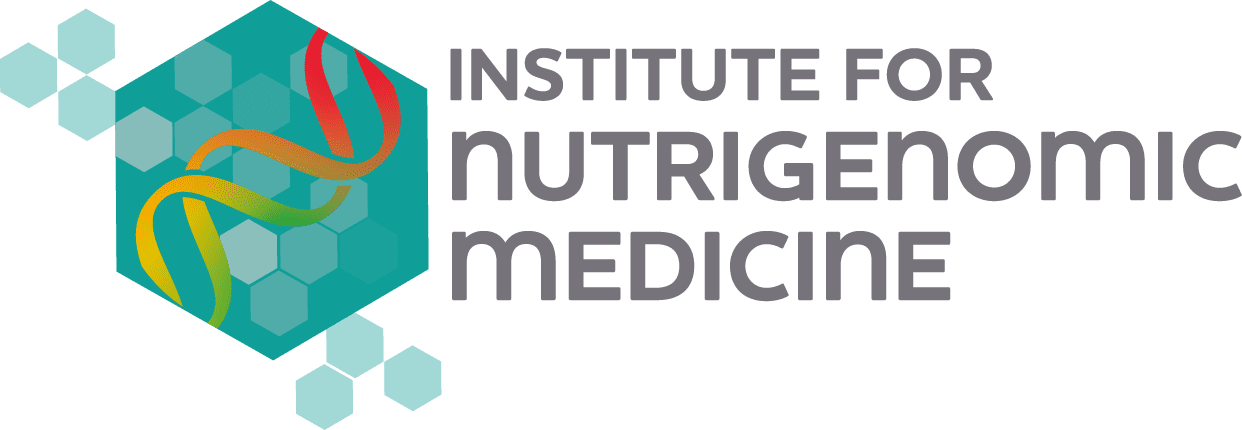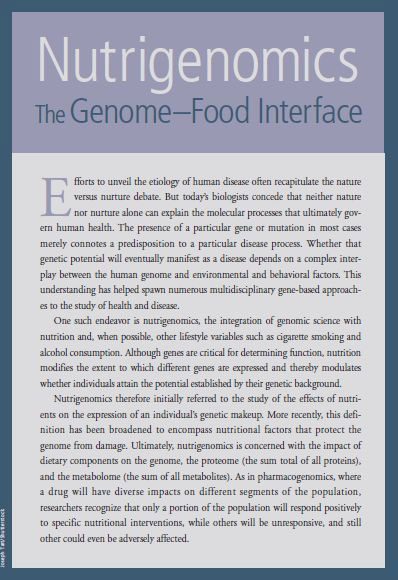Efforts to unveil the etiology of human disease often recapitulate the nature versus nurture debate. But today’s biologists concede that neither nature nor nurture alone can explain the molecular processes that ultimately govern human health. The presence of a particular gene or mutation in most cases merely connotes a predisposition to a particular disease process. Whether that genetic potential will eventually manifest as a disease depends on a complex interplay between the human genome and environmental and behavioral factors. This understanding has helped spawn numerous multidisciplinary gene-based approaches to the study of health and disease.
One such endeavor is nutrigenomics, the integration of genomic science with nutrition and, when possible, other lifestyle variables such as cigarette smoking and alcohol consumption. Although genes are critical for determining function, nutrition modifies the extent to which different genes are expressed and thereby modulates whether individuals attain the potential established by their genetic background.
Nutrigenomics therefore initially referred to the study of the effects of nutrients on the expression of an individual’s genetic makeup. More recently, this definition has been broadened to encompass nutritional factors that protect the genome from damage.

